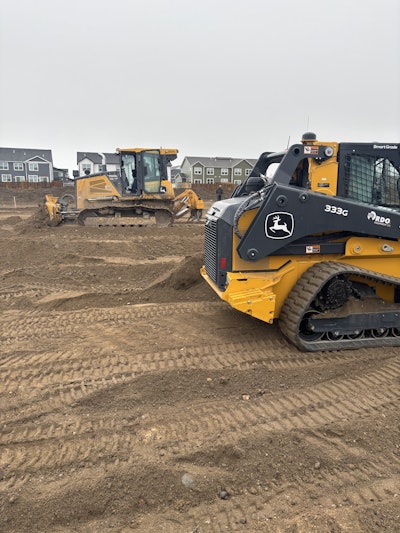
Montana State University (MSU) has partnered with RDO Equipment Co. to launch a hands-on training program that gives civil engineering students practical exposure to the latest surveying and machine control technology used on today’s construction sites.
The four-week course module introduces students to Topcon Positioning Systems and SmartGrade machine control systems through real jobsite experiences, including equipment training, data transfer and project setup. The initiative reflects a shared goal between MSU faculty and RDO leaders to better prepare students for the demands of modern construction careers.
“MSU aims to provide authentic exposure to jobsite experiences whenever possible,” said Bret Martin, associate professor in MSU’s civil engineering department. “This course gives students practical skills they’ll use daily, while raising their awareness of tech solutions that will make them better decision-makers on future projects.”
 RDO Equipment
RDO Equipment
The course emerged from an ongoing collaboration between Martin and Jake Michels, an MSU alumnus and technology solutions manager at RDO. In addition to Topcon’s donation of surveying equipment, local contractor Williams Civil offered access to its quarry near Bozeman for real-world training exercises.
Students learned to set up base stations, localize projects, stake out lines and points and operate GPS-guided John Deere SmartGrade machines. Onsite tasks were designed to reflect the responsibilities of entry-level field engineers, with RDO technology specialists guiding students through each step.
“The students were energized by the experience,” Martin said. “Many asked to stay late, and our RDO partners were more than willing to keep working until sunset.”
Looking ahead, Martin and Michels plan to expand the module into a dedicated two-credit course, with the potential for students to earn professional certifications in machine control technology.

















